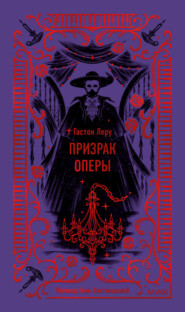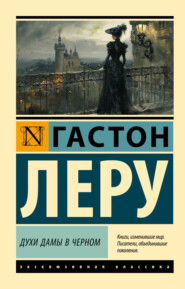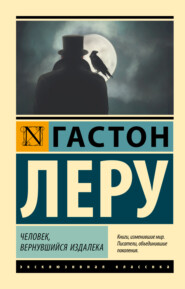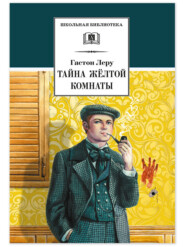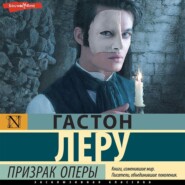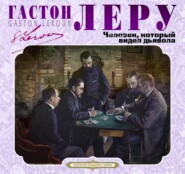По всем вопросам обращайтесь на: info@litportal.ru
(©) 2003-2024.
✖
The Bride of the Sun
Автор
Год написания книги
2018
Настройки чтения
Размер шрифта
Высота строк
Поля
“I meant no harm, señor. A Quichua offered me a drink here… real pisco, señor.”
Dick, without listening, dragged the protesting man through the streets and into the empty office. When he realized what had happened, Domingo would have torn his hair out with grief, but Dick, seizing him by the throat, drove him to the wall and looked into his eyes. A fool or a traitor, which was he?
Told to speak, and speak quickly, Domingo answered Dick’s volley of questions without a minute’s hesitation. The señorita could not have been carried off without the aid of Libertad, a rascally half-breed to whom the señorita had given work out of pity. The day and hour had been chosen by some one who knew the place well, for on Saturday afternoons there were no workmen or clerks on the premises.
“When you went out to drink, was the motor already waiting?”
“Yes, señor. It had been there half an hour.”
“Was the hood up?”
“No, señor. Libertad was sitting in it alone.” Releasing his grip, Dick dashed into the street again and started running toward the main avenue. If Maria-Teresa had been carried off in her own motor, it would be easy to trace her part of the way. As Domingo had said, there were not so many cars about.
As he dashed round a corner, Dick came into sharp collision with a man emerging from a doorway, who swore vigorously. Dick recognized him at once, and gave such a shout that the chief of police, for it was he, fell into a posture of defense.
“Forgive me, señor.... I am Dick Montgomery… the fiancé of Señorita de la Torre.... She has been carried off by the Indians!…”
“Doña Maria-Teresa? That is not possible!” In a few words, Dick told the little old gentleman what had happened, and gave him his suspicions. He found ready sympathy and belief.
“I was on my way to dine with a friend just opposite. A minute while I tell them that I cannot come, and I am with you.”
He hurried across the street while Dick, with an indignant snort, moved on toward the harbor, questioning shopkeepers and pedestrians as he went. So far as he could gather, the motor had about half-an-hour’s start of them.
Dick was convinced that he had seen the last of the Chief of Police. In this he did the little man an injustice, for he had hardly gone two hundred yards before he heard footsteps behind him.
“You did not wait, señor? Well, here I am. Natividad is always to be counted upon.”
Though his real name was Perez, the Chief of Police was known throughout the city as Natividad, a nickname earned him by his cherubic face, and of which he was rather proud. Dick found the little man hot enough against the Indians even for his taste. Natividad hated the Quichuas, and believed them capable of anything.
Just before they reached the harbor, at the corner of the narrow Calle de San Lorenzo, Natividad seized Dick by the arm and drew him to the wall. The street was deserted, and lighted only by feeble rays from a low glass-paned door a few steps ahead. This door had just been opened, and a man peered out cautiously. Dick stifled a desire to shout. He had recognized Huascar!
The Indian whistled, and two shadows, wearing wide-brimmed Indian sombreros, detached themselves from the wall at the other end of the street. They rejoined Huascar, who had closed the door behind him, and exchanged a few rapid words. Then the two walked off in the direction of the harbor, and Huascar disappeared as he had come.
Natividad, pressed against the wall, held Dick’s hand in a grip that imposed silence. “Why is it? What does it mean? Perhaps she is in there,” the young man whispered.
Signing the engineer to stop talking, Natividad crept toward the door, and at the risk of being discovered, peeped through the uncurtained panes. Dick, looking over his shoulder, saw a room full of Indians sitting at tables, but neither smoking nor drinking. Huascar was walking up and down between the tables, in deep thought Then he vanished up a staircase leading to some room on the first floor.
Natividad had apparently seen enough, for he dragged Dick into the shadow of a neighboring porch.
“I cannot make it out,” he said. “What are they all doing here during the Interaymi? I thought every Quichua in the city had left for the mountains. There should not be one here for the next ten days. But I cannot believe Huascar has anything to do with the kidnaping. He wouldn’t tell his secret to all the Indians of Peru, when he knows that nearly every one of them can be bought for a few centavo!”
“Wait before you make up your mind. We can at all events find the motor. I am sure Huascar knows where Maria-Teresa is. We must not lose sight of him.”
“We shall not have to wait long,” replied Natividad, stiffening at a fresh noise from the other end of the calle. “Here are those Indians coming back with horses.... What does it mean?… Madré de Dios!… Is it possible?… The Interaymi!… Silence!”
The clatter of hoofs on the cobbled roadway showed that quite a strong cavalcade was approaching, and the watchers drew back farther to the shelter of an alley nearly opposite the low door, and from which they could still see all that was happening round it. As the cavalcade rode up, the door opened again, showing all the Indians standing up, and apparently waiting for somebody.
Huascar appeared first; after him an Indian whom Dick recognized at once for the Red Preacher of Cajamarca; lastly a man in a lounge-suit of impeccable cut:—Oviedo Huayna Runtu himself. Then an incredible thing happened. All these men who had remained motionless before Huascar and the priest bent on their knees, humbled their heads to the ground before the bank-clerk.
The troop of horses and mules had halted before the low door, and men with lanterns came out of the house. The bank-clerk was the first to vault into the saddle, Huascar holding his stirrup. Then Huascar and the Cajamarca priest mounted, ranging themselves on each side of the leader, but just behind him.
Huascar turned in his saddle and made a sign. Every Indian in the party threw open his poncho, showing beneath it, in the light of the lanterns, another cloak of brilliant red.
“The Red Ponchos!” gasped Natividad, grasping Dick’s arm.
There was a whistle at the end of the street, answered by another a long way off, at the other end of the Darsena quay,… and the cavalcade started.
Dick made as if to follow, but Natividad held him back.
“Wait, and listen! We must know which way they are going!”
II
H unched forward, he listened, then turned to his companion.
“The Chorillos road. Unless I am much mistaken, they are following the motor.”
“Come on; we must get after them! Where can we get horses?”
“Follow me. We can do better than that. We have the telephone and the railway.” And once again he took up his litany:—“The Red Ponchos! The Red Ponchos!”
“What do you mean by that?… Red or gray, it’s all one.... Those men belong to Huascar’s band, and helped him.... That seems pretty clear to me.”
“Quite right, quite right. I agree with you now, young sir,” replied Natividad, puffing by Dick’s side as they hurried toward the railway station. “Yes, indeed. They are all in it.... The Red Ponchos.... The Priests of the Sun.” Dick stopped dead. Natividad’s last words at last made him understand. He remembered, in a flash, all the legends told by Aunt Agnes and old Irene. And they had seen fit to laugh.
“Good God!” he groaned, and began running again. As he ran, he shouted to his companion:—“But we’ll catch them yet, and you’ll arrest them all!”
“I shall do what I can. But there are at least thirty of them, and there are not enough troops in Callao to send a squadron in pursuit.... Every soldier the city could spare has been sent into the sierra against Garcia.”
“You can telephone to Lima.”
“And they’ll take me for a madman, as they did ten years ago,” replied Natividad enigmatically.
“Will we get to Chorillos before them?”
“Yes, there’s a train in ten minutes’ time.”
“It seems to me we would have done better to follow on horseback. Then we could have found out where they were going. Thirty of them, are there? Only damned Indians, though. I wouldn’t mind tackling the lot myself.”
“This way is the best....” And Natividad added in an undertone: “They wouldn’t believe me ten years ago. Well, it’s beginning again.” Dick, intent on reaching the railway station, did not hear him. He could only think of those mysterious Indians on the highroad out there. “We shall lose their track,” he groaned.
“You need not fear that,” replied the Chief of Police. “Their road runs alongside the railway line. If we see a motor waiting on it, we stop the train. If we overhaul the Red Ponchos alone, we go on to Chorillos, and wait for them there. I’ll see that the police expect them. Nothing is lost yet, Señor Montgomery.”
At the railway station, Natividad found he had just time to telephone his instructions to the Chorillos police. No motor coming from the direction of Callao was to be allowed to pass.
They were talking to the guard of the express when a Lima train steamed into the station, and they saw the Marquis, Uncle Francis and little Christobal appear.
“Where is Maria-Teresa?” shouted the Marquis as he caught sight of Dick, and ran toward him. “Why are you alone? Where is she? What has happened? Speak, boy!”







